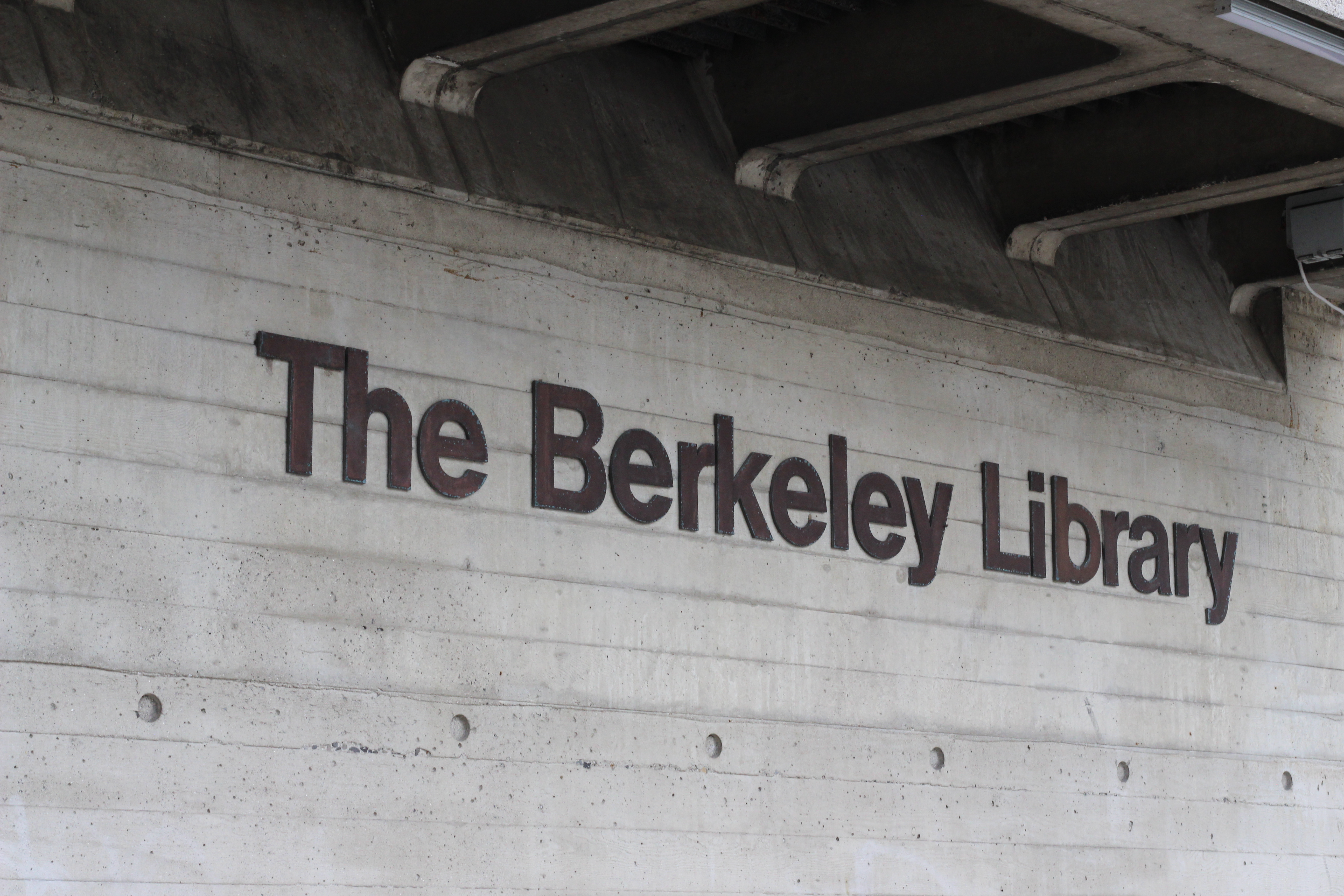If you were unfortunate enough to be glued to your chair in Berkeley library last Thursday evening, like so many of us, you may have spotted an unusual occurrence. Facing out of the window, a faint light sparkled on the concrete. Was it an over-eager tourist, too liberal with their flash? Or the glow of leftover cigarette butts from those desperately abandoning their seats? No, it was the periodic table, a site rarely seen on this glamorous but grim end of campus. Projected proudly across the Berkeley, the 118 elements lit up the building to passers by.
As part of Chemistry Week, an annual Royal Society of Chemistry (RSC) initiative, Trinity celebrated the diverse range of disciplines under the umbrella of chemistry and the importance of the chemical sciences in our day to day life. This Chemistry Week falls in the International Year of the Periodic Table (IYPT) which inspired the immersive projection. The aim of the prominent display was to raise awareness of elements in danger, and was featured in 11 other universities spread across Ireland and the UK.
When we think of natural resources in danger, it is not often our mind wanders to the indium in your touch screen phone. But at present, of around 30 elements that make up your mobile phone, six are predicted to run out in the next 100 years. This is at our current rate of consumption and could be considerably more as we increase our reliance on technology. Not only does this pose a considerable threat to modern technology, it has the potential to cause even more drastic consequences. Many devices also contain what are known as “conflict elements”, such as gold, tin and tungsten. These are often mined in conflict areas or regions in which child labour is the norm.
The campaign aims to encourage the recycling of unused or broken tech devices, to deal with the increased demand for these precious elements. In a survey carried out recently by the RSC, it was found that over 50% of UK households have an unused smart device lying around, and 45% of households kept up to 5 devices that were no longer used. Most worryingly 82% of households have no intention to recycle them, and are inadvertently stockpiling elements that we need to function as a society. Although it is very easy to forget about ancient relics at the bottom of drawers, like your 2009 iPod shuffle, it might be time to have a search. After a nostalgic bop to some classic Usher it might be time to drag yourself away from your preteen playlist and head to your nearest recycling facility. According to Dr Robert Parker, CEO of the RSC: “We need action now – from governments, manufacturers and retailers – to make reuse and recycling much easier, and we must enable a new generation of chemistry talent to help.”
A major task faced by modern chemists is to find creative solutions to the increasing issue of diminishing and “conflict” elements. They also face the question of how to recycle the elements in currently used devices in the most effective way. “In the future, they could be needed for other technologies that we haven’t even discovered yet – for health, green energy, treating pollution and more,” notes Parker. Given the role chemistry will need to play in efforts to halt the climate emergency, it is important that chemists have any elements that they may need in their arsenal to fight global warming and our changing climate. This is a time when we cannot afford to be running out of elements that could be the difference between our saving and our downfall.
Professor Sylvia Draper, Dean of the Faculty of Engineering, Maths and Science (FEMS) and inorganic chemist said: “The RSC’s elements in danger IYPT projection is a really exciting initiative and Trinity is delighted to be involved. It highlights an issue that affects how we educate the next generation of science and engineering graduates. These are the people who will enable societies worldwide to live and work on this planet in sustainable ways.”
“For many, the Periodic Table was something they left behind in the school classroom. The reality, however, is very different. It lists the 118 elements known, and from which all matter is made. Each element has its own unique properties, and its own selection of practical uses. If you use up the natural supply of an element you lose its applications and it is lost to society. At a time when human populations are increasing and we are faced with a deepening climate crisis we simply can’t afford to lose elements that may hold the solution to a number of environmental and societal issues.”
With cyber Monday approaching and the festive season too, it seems clear that we all need to be more conscious consumers of technology. Before we go out and purchase any new devices this holiday season, this might be an opportunity to reuse or recycle those that we already have. This IYPT projection, right in the heart of campus, seems like a good place to start.






